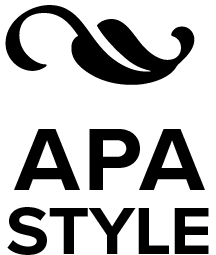PENGARUH EDUKASI MELALUI PENDEKATAN ROLE PLAY TERHADAP KEMAMPUAN IBU MENSTIMULASI PERKEMBANGAN MOTORIK ANAK
Abstract
ABSTRACT
Parents are the right caregivers in preparing children to grow and develop properly. Therefore, the role of parents is essential in providing good education to children. A Role-play approach is an education that gives freedom to fully express and make decisions to provide stimulation to children's fine motor and gross motor development. In addition, a mother can evaluate the children's experiences through observations when children do activities through this role-play method. In fishing communities, especially Fishermen in Kajuara Village, Bone Regency, the population level of children 6-24 months is very high, but a child's development occurs naturally without any stimulation that can support maximum child growth and development. The purpose of this study was to determine the Effect of Education through a Role Play Approach on Mother's Ability to Stimulate the Motor Development of Children 6-24 Months in the Fisherman Community of Bone Regency. This research uses Quasy Experimental with Non-equivalent Control Group Design approach. The sample in the study was 30 people who were taken using the judgmental sampling method and divided into two groups, namely the control group and the intervention group. The results of this study indicate that the provision of education through lectures does not affect the mother's ability to stimulate the motor development of children aged 6-24 months, while education through a role-play approach affects the mother's ability to stimulate the motor development of children aged 6-24 months in the fishing community of Kajuara Village, Bone Regency.
Keywords: Education; Role Play; Ability; Stimulation; Motorik
Metrics
References
Destiana, R., Yani, E. R., & Yanuarini, T. A. (2017). Kemampuan ibu melakukan stimulasi
untuk perkembangan bayi usia 3-6 bulan di wilayah kerja puskesmas puhjarak.
Jurnal Ilmu Kesehatan.
Dewi, N. L. D. A. S., & Yulaika, A. (2019). Analisis Faktor yang Mempengaruhi
Perkembangan Motorik Halus pada Anak Usia Prasekolah di TK Ra Diponegoro
Desa Ngajum Kabupaten Malang. Jurnal Kesehatan Mesencephalon.
Fransisca Handy. (2015). jawaban dokter untuk perawatan dan perkembangan bayi (0-12
bulan), jakarta, PT. Trans Media.
Handayani, G. L., & Abbasiah, A. (2020). Hubungan Stimulasi Bermain, Faktor Keluarga
dan Faktor Anak dengan Perkembangan Balita di Wilayah Kerja Puskesmas Aur Duri Kota Jambi. Jurnal Ilmiah Universitas Batanghari Jambi.
Nita, A. R. F. & N. (2012). Buku Pintar Asuhan Bayi dan Balita. Cakrawala Ilmu.
Puspita, L., & Umar, M. Y. (2020). Perkembangan motorik kasar dan motorik halus ditinjau
dari pengetahuan ibu tentang pertumbuhan dan perkembangan anak usia 4-5 tahun.
Wellness And Healthy Magazine.
Rizki, M., Budi, I. S., & Destriatania, S. (2016). Analisis Kinerja Petugas Pelaksana Stimulasi
Deteksi Intervensi Dini Tumbuh Kembang (SDIDTK) Balita Dan Anak Prasekolah Di Wilayah Kerja Puskesmas Keramasan. Jurnal Ilmu Kesehatan Masyarakat.
Saam, Z., & Wahyuni, S. (2013). Psikologi keperawatan. Cetakan ke-3. Jakarta: PT Raja
Grafindo Persada.
Siska, Y. (2011). Penerapan Metode Bermain Peran (Role Playing) dalam meningkatkan
Keterampilan Sosial dan Keterampilan Berbicara Anak Usia Dini J.Educ
Sugiyono. (2016). Metode Penelitian Kuantitatif, Kualitatif dan R&D. Bandung. Alfabeta.
Yani, H. F. (2020). Metode Bermain Peran (Role Playing) dalam Perkembangan Bahasa
Anak Usia Dini 5-6 Tahun. Universitas islam negeri sutlan syairf kasim riau.
















